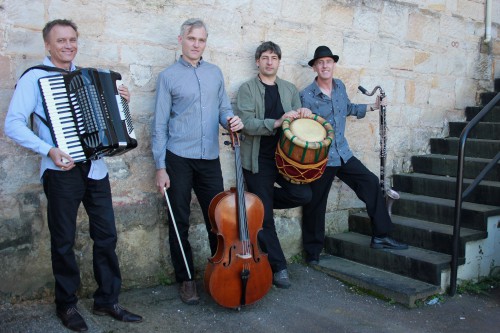The Boiler House, August 17
9/10
It’s a rare sensation these days, but there is still such exhilaration in being taken to the edge of the possible. Many sections of this concert made you felt you’d had a craniotomy, and the top of your skull had rocketed skyward. Led by Gary Daley (piano, accordion), with Paul Cutlan (clarinet, bass clarinet, alto saxophone), Ollie Miller (cello, electronics) and Tunji Beier (percussion) Bugarribee is a band that can go anywhere and seemingly do anything, keeping the listener’s eyebrows in a near-permanent state of astonishment.

The compositions came from such adventurers in the classical tradition as Sculthorpe, Bartok and Ligeti, French jazz composer Louis Sclavis and from Daley and Miller. The players could improvise freely on any of the above, and mix in Carnatic rhythmic flavours.
Among the most dizzying pieces was an arrangement of the seventh movement of Ligeti’s Musica ricercata, originally penned for solo piano. Now the work’s left-hand ostinato became a bass clarinet figure that was looped by Beier, against which the percussionist played jaw harp to create a racing, train-like figure, while Daley’s accordion played the sweetly melancholic melody, and Miller frosted it all with eerie electronics.
Then we were catapulted into the ravishing beauty of Scalvis’ tango-like Annobon, the improvising including Daley at his most lyrical on accordion, contrasting with Miller’s startling pizzicato solo, before Cutlan’s seemed to expand the bore of his bass clarinet to generate a monstrous sound one moment and spectral cries the next.
So much of the music contained the thrill of the new, realised with dazzling invention and interplay. The cello and bass clarinet bathed Bartok’s Notturno in inky blackness, through which the accordion and Beier’s piping ghatam (clay pot) sent sudden shafts of light, and the original pieces included the spiralling motif at the core of Daley’s skipping, deftly-written Hunger. Wayward moments were few and fleeting in such ambitious music; music which was often, in ironbound idiomatic terms, a continuation of that immeasurably fertile conversation between the avant-garde and folk.